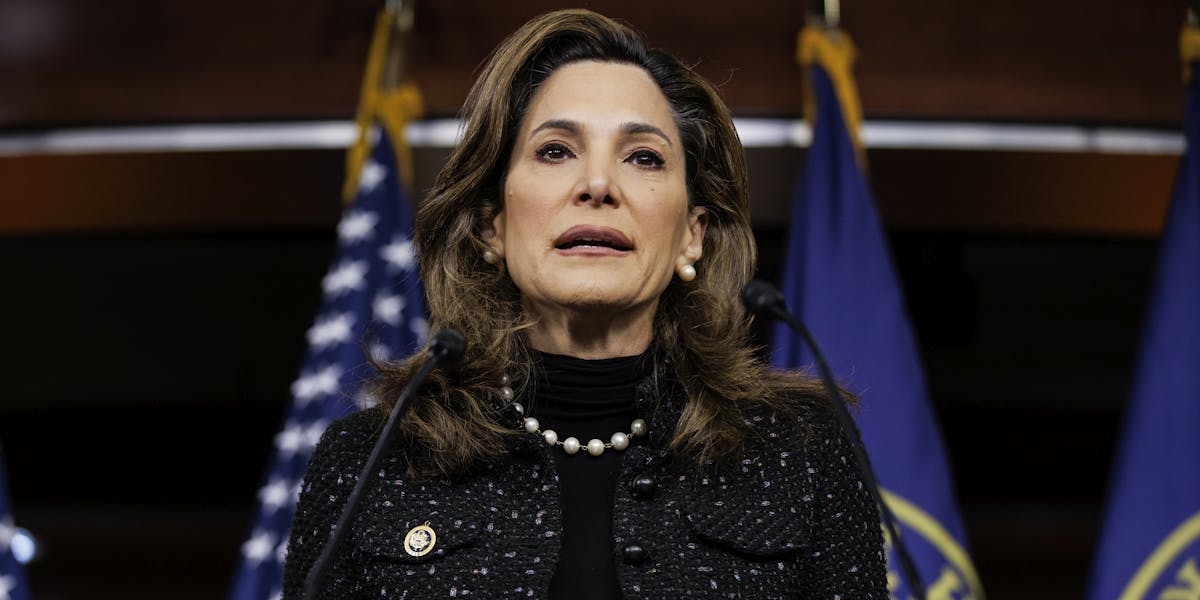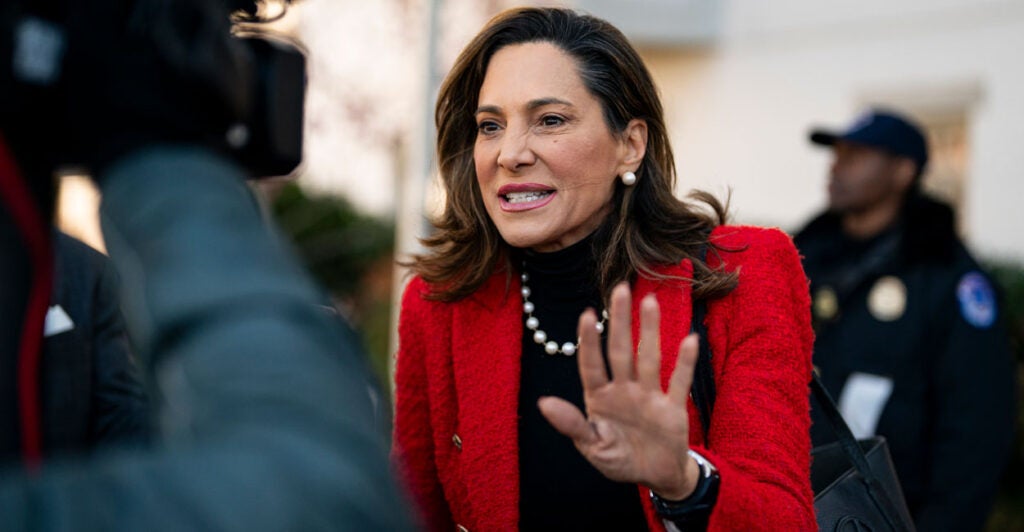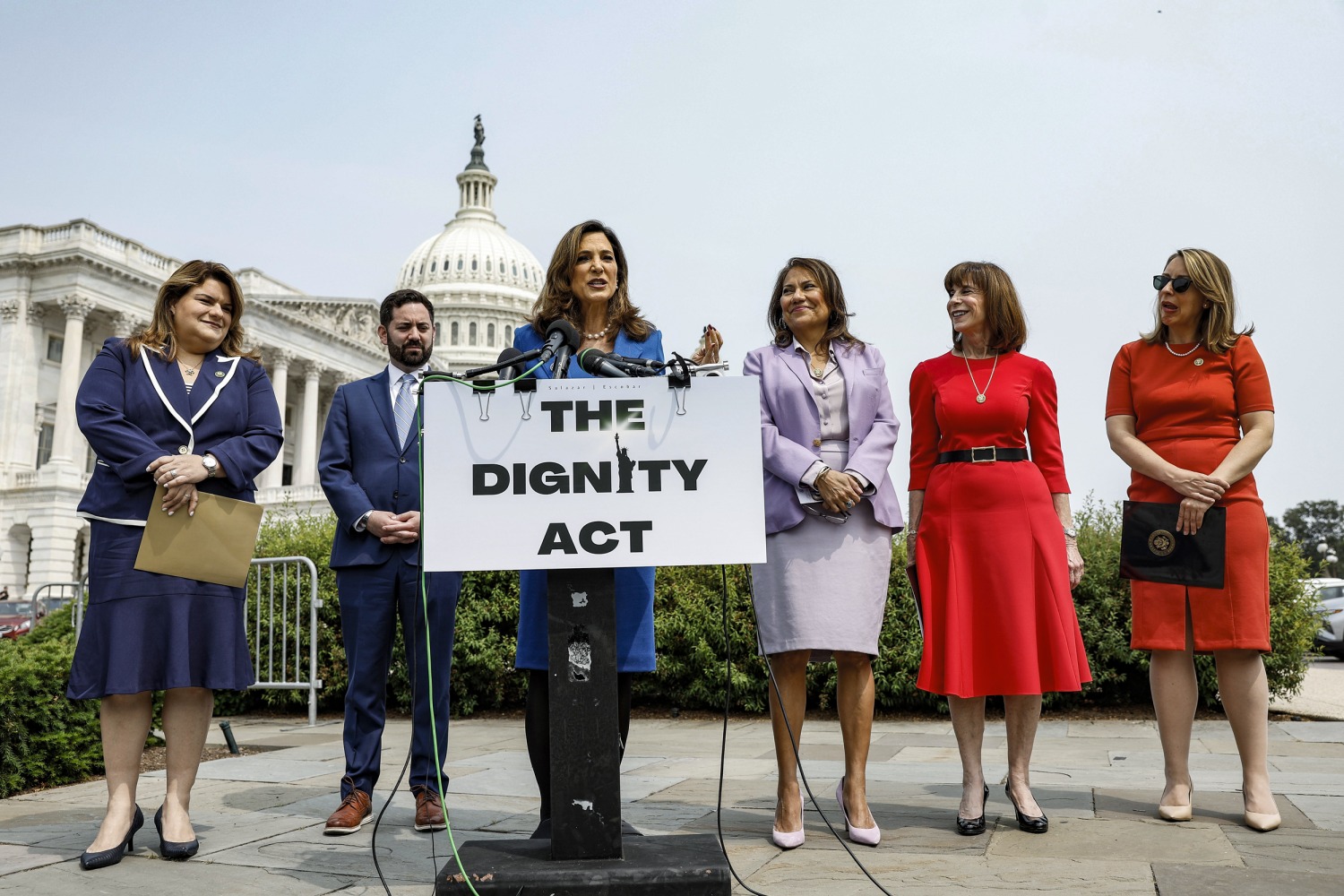Republican Representative Maria Salazar of Florida is once again sparking controversy among conservatives after promoting her immigration reform bill during a Fox News interview.
The legislation, known as the Dignity Act of 2025, has drawn fierce criticism for its perceived leniency toward millions of undocumented immigrants currently residing in the United States. Critics argue that the bill essentially amounts to amnesty, betraying key principles championed during the Trump administration.
Salazar’s recent remarks underscore her push for what she describes as a necessary “national conversation” about the millions of undocumented immigrants who have lived in the country for years.
Speaking on Fox News, Salazar emphasized the importance of addressing the status of immigrants who have lived in the U.S. for more than five years, contributing economically without criminal records.
“I believe that after the border has been sealed… the moment now is to have that national conversation and determine who are we going to be targeting,” Salazar said.
“Now there is another mass of people—who most of them are Hispanics—who have been here for more than five years. They have been contributing to the economy, who do not have a criminal record… and for that reason, I’m introducing today… immigration reform.”
Despite Salazar’s insistence that her bill does not constitute amnesty, many conservatives remain unconvinced. The bill’s pathway to legal status draws sharp comparisons to the controversial 1986 Reagan-era amnesty, a program that remains a sore subject among Republican voters today. Critics argue that the legislation rewards those who have broken immigration laws while undermining enforcement efforts.
The Dignity Act includes a 10-year “Dignity Program” designed to provide a route for undocumented immigrants to gain legal status. Under the program, immigrants must pay restitution, maintain a clean criminal record, and continue working in the U.S.

The bill also contains provisions aimed at enhancing border security, including $150 billion in funding for the Border Patrol and investments in enforcement technology.
However, these provisions have done little to appease conservative critics who view the legislation as a betrayal of former President Donald Trump’s hardline immigration policies.
Salazar’s bill has ignited fierce backlash from many conservative voters and activists who see any form of legalization for undocumented immigrants as a betrayal of Trump’s legacy.
Trump’s administration made border security and immigration enforcement a centerpiece of his presidency, with efforts including building physical barriers and intensifying deportations.
Many conservatives argue that a legal pathway for undocumented immigrants rewards illegal behavior and undermines the rule of law. They contend that the focus should remain on enforcing immigration laws and securing the border rather than creating new opportunities for those who have circumvented the system.
This tension places Salazar in a challenging position politically. She has branded herself a “compassionate conservative,” attempting to balance conservative values with a pragmatic approach to immigration reform.
By framing the Dignity Act as a moral and practical solution, she hopes to appeal to moderate voters and those within the Hispanic community who may support legal status for longtime undocumented residents.
Co-sponsored with Democratic Representative Veronica Escobar of Texas, the Dignity Act seeks to provide a pathway to legal status — not citizenship — for undocumented immigrants who meet specific criteria.

Applicants must have lived in the U.S. since 2021, pass thorough background checks, pay $7,000 in restitution, and maintain legal compliance.
Participants in the program would receive work permits valid for up to seven years, with the possibility of renewal if they remain in good standing. The legislation also calls for significant investments in border security and enforcement to accompany the legalization measures.
Salazar argues that the bill is a necessary response to the reality that many undocumented immigrants are already integrated into American society, contributing to local economies and communities.
She stresses the importance of addressing their status to bring clarity and stability to millions of lives while preserving national security.
Despite the bill’s provisions for increased border security funding, Salazar faces accusations from conservatives that her proposal betrays the immigration policies championed by President Trump.
Trump made tough border enforcement a signature element of his administration, cracking down on illegal crossings and advocating for a wall along the southern border.
Critics accuse Salazar of undermining these efforts by offering a legal pathway that could encourage further illegal immigration. Many conservative voters view any form of amnesty or legalization as a step backward, weakening the integrity of U.S. immigration law.
Salazar has also highlighted other immigration policy challenges, such as the termination of the CHNV (Cuban, Haitian, Nicaraguan, and Venezuelan) program and recent court decisions affecting asylum seekers. In a statement last month, she emphasized the importance of due process for all immigrants while calling for comprehensive reform.

“Arrests in immigration courts, including people with I-220A and pending asylum cases, the termination of the CHNV program, which has left thousands exposed to deportation, and other similar measures, all jeopardize our duty to due process that every democracy must guarantee,” Salazar said.
Salazar’s push for immigration reform comes amid an ongoing national debate over immigration policy. The Dignity Act places her at odds with many in her own party who remain steadfast in opposing any form of legalization for undocumented immigrants.
Her partnership with Democrat Veronica Escobar on the bill underscores a bipartisan approach to immigration reform that seeks to address the issue comprehensively. However, it also risks alienating conservative voters who view the legislation as too lenient.
The political fallout from Salazar’s stance will likely be felt in future election cycles, as immigration continues to be a key issue among Republican voters. Whether her compassionate conservative framing can resonate with a broad coalition remains to be seen.
Salazar’s call for a national conversation about the status of undocumented immigrants reflects a growing recognition among some lawmakers that the status quo is untenable. Millions of people have lived in the U.S. for years without legal status, contributing to communities and the economy.
While immigration enforcement remains a priority for many, there is increasing awareness that comprehensive reform may require pathways for legalization that balance security with humanitarian concerns.
The Dignity Act attempts to navigate this complex landscape by combining legalization measures with strict eligibility requirements and enhanced enforcement funding. Its success will depend on political will and public support.
Representative Maria Salazar’s Dignity Act of 2025 represents a bold and controversial attempt to reshape the immigration debate. By proposing a pathway to legal status for millions of undocumented immigrants, the bill challenges entrenched Republican opposition to any form of legalization.

While Salazar insists the legislation is not amnesty, many conservatives remain unconvinced, viewing it as a betrayal of President Trump’s immigration legacy. Her efforts highlight the deep divisions within the Republican Party and the broader national debate over immigration policy.
As the bill advances and garners attention, Salazar will face continued scrutiny from both supporters and critics. The question remains whether her compassionate conservative approach can build a coalition for meaningful immigration reform or whether it will deepen partisan divides on this contentious issue.
Full video:

-1749650366-q80.webp)


-1749799998-q80.webp)